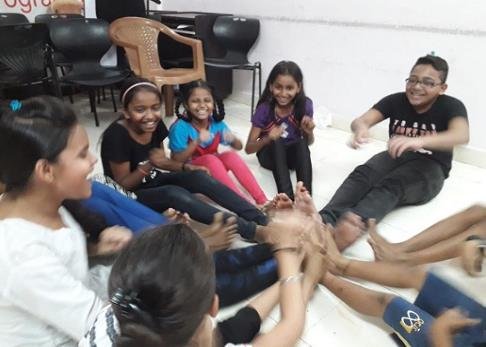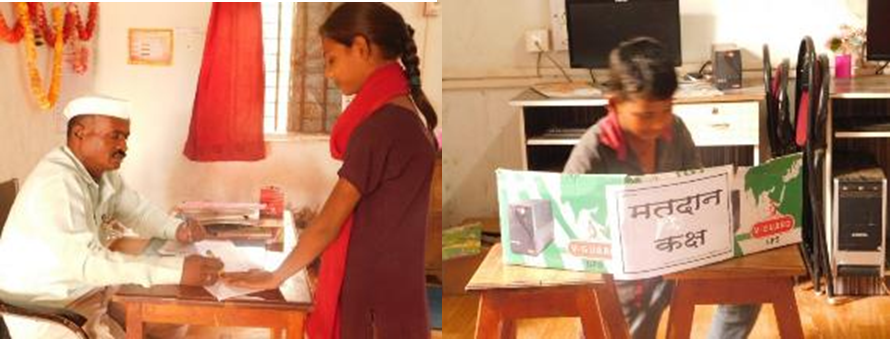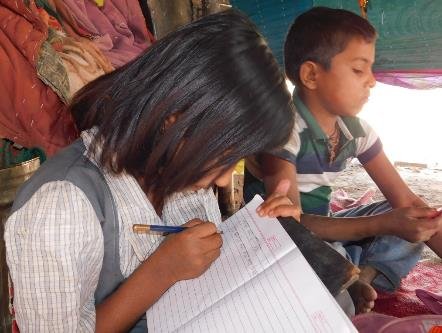ASVSS-Amazon Volunteer had “Road safety” Activity with children
On the date of February 5, 2024 at Late.. Maruti Genu Kaspte highshool ,Kasptewasti . Pune Pragati mitra Kirti Raut
Dr.Ambedkar Sheti vikas va sanshodhan sanstha (ASVSS) does not tolerate any form of child abuse or exploitation. Children who come into contact with ASVSS must be protected from deliberate or unintended actions that place them at risk of child abuse, sexual exploitation, injury, discrimination and any other harm.
In all actions concerning children, the welfare of the child is the paramount consideration with ASVSS being committed to the principles of the Convention of the Rights of Children 1989 and the Declaration of Human Rights 1948 both of which promote respect for the rights of children
On the date of February 5, 2024 at Late.. Maruti Genu Kaspte highshool ,Kasptewasti . Pune Pragati mitra Kirti Raut
Award received for excellent work done in Vhannur Sarpanch Pooja More, Gram Sevak, GP Member Sujata Mane with grass roots

MISSION EDUCATION a partnership between smile foundation and the prem foundation for educational support of the underprivileged children in Goregaon

Conduct innovatively “Bal Sansad” child rights like survival, development, protection, participation and any innovative work with children focusing on girl

In 21 villages strengthened “Bal Vikas Manch” in Sangola block District Solapur. Build and Strengthen Personality of Children through recreation


ASVSS Child Protection Policy is to ensure that ASVSS has guidelines in place to ensure protection from deliberate or unintended actions that place them at risk of child abuse, sexual exploitation, injury, discrimination and any other harm by any member of the organization. This policy provides guidance and direction to all associated with ASVSS so that:
• Organisational risks and duty of care towards children are covered through implementing procedures to safeguard children through good practice.
• There are clear guidelines on reporting suspected child abuse and all forms of violence against children.
• There are clear consequences for the breach of guidelines.
The scope of ASVSS’s Child Protection Policy (and any adaptions made to ensure legal compliance within an ASVSS) applies to:
• All ASVSS staff members, whether full time, part time or engaged on fixed-term contracts (staff members must act in accordance with this policy in their professional lives and are encouraged to do the same in their personal lives).
• Consultants, interns, volunteers, board members, representatives of partner agencies and any other individuals, groups or organisations who have a formal/contractual relationship with ASVSS that involves any contact with children.
• Donors, journalists, celebrities, politicians and other people who make contact with or communicate externally about children must be made aware that this Policy applies to them while visiting ASVSS programs or offices.
Word/ term | Definition | |
Child |
| |
Child Abuse | Child Abuse-It is defined as all form of physical abuse, emotional ill treatment, sexual abuse and exploitation, neglect or negligent treatment and includes any action that result in actual and potential harm to child. a. Physical Abuse – the use of physical force against a child that results in harm to the child. Physically abusive behaviour includes shoving, hitting, slapping, shaking, throwing, punching, kicking, biting, burning, strangling and poisoning. b. Emotional ill treatment—refers to a parent or caregiver’s inappropriate verbal or symbolic acts toward a child or a pattern of failure over time to provide a child with adequate non-physical nurture and emotional availability. Such acts have a high probability of damaging a child’s self-esteem or social competence. c. Sexual Abuse and exploitation – is evidenced by an activity between a child and an adult or another child who, by age or development, is in a relationship of responsibility, trust or power; the activity being intended to gratify or satisfy the needs of the other person. d. Neglect or negligent treatment – the failure by a parent or caregiver to provide a child (where they are in a position to do so) with the conditions that are socially and culturally accepted as being essential for their physical and emotional development and well being. | |
Child Right | The rights of any person below the age of 18 years as recognized by the UNCRC and other concerned international instruments and operationalized through Indian legislation. | |
Child Protection | Safeguard from all forms of physical, sexual, mental, emotional, spiritual, economic and social abuse and exploitation. Child Protection within the scope of this policy is defined as the responsibilities, measures and activities that ASVSS undertakes to safeguard children from both intentional and unintentional harm. | |
Child Friendly | “Child friendly” means any process, interpretation, attitude, environment and treatment, that is humane, considerate and in the best interest of the child (Model Rules of JJ Act 2007 1). It includes a suitable, non-threatening environment for the holistic growth and development of children. | |
Vulnerable children
| Children hailing from critical backgrounds including dysfunctional families, working children, destitute, orphans, street children or children in acute vulnerable situations or any environment that is risky and might inhibit the growth and development of the child shall also be considered as critical background. |
4.1 Line Managers
To report and record any incident of concern about child protection to the appropriate child protection agency.
4.2. Human Resources
Ensure ASVSS’s Child Protection Policy for all staff is included in the offer letter to all new staff members and all ASVSS Board members.
4.3 All ASVSS Staff
All staff must:
In general, it is inappropriate for staff members to:
Staff members must never:
Staff members must avoid actions or behaviours that could be construed as poor practice or potentially abusive. For example, they must never:
Some operational definitions in the context of ASVSS
Guiding Principles
Zero tolerance of child exploitation and abuse
ASVSS does not tolerate child exploitation and abuse. Such action attracts criminal, civil and disciplinary actions, as the case may be. ASVSS works to reduce the risks of child exploitation and abuse associated with delivering project activities and trains its staff on their obligations. ASVSS will not knowingly engage—directly or indirectly—anyone who poses an
unacceptable risk to children. ASVSS will also not accept and not employ any child for work.
Recognition of the best interest of the child
ASVSS is committed to upholding the rights and obligations under The United Nations Convention on the Rights of the Child (UNCRC) ratified by India. ASVSS recognises that some children such as those with disability and children living in areas impacted by disasters are particularly vulnerable.
Sharing responsibility for child protection
To effectively manage risks to children, ASVSS requires the commitment, support and cooperation of Government and other civil society organisations.
According to Protection of Children from Sexual offence Act 2012, offence against a child including but not limited to sexual harassment is a serious offence and once reported to the Police, the enforcement agency will take action as per the law and ASVSS shall render all possible assistance to the agencies in enforcing the law. Confidentiality ASVSS shall maintain the principle of confidentiality in all the cases related to vulnerable
children. It would not disclose any information that adversely affects the safety and dignity of a child.
Implementation Strategies
Internal procedures for handling complaints related to child exploitation and abuse A 3-member nodal committee would be responsible to lay down the procedure of receiving complaints against violation of any provision of the policy within the organisation. For operational clarity, the Internal Complaint Committees (ICC) constituted in each state in accordance with the provision of Sexual Harassment of Woman at Workplace (Prevention, Prohibition and Redressal) Act 2013 would be the body to receive the complaints of violation
of child rights in their respective states. The ICC would act under the supervision and guidance of the nodal committee on matter related to child rights. The nodal committee shall organise regular orientation sessions and workshop to spread the awareness about the policy within the organisation and sensitise its functionaries to respect the rights of children. The composition of this committee is as follows:
Child Protection Code of Conduct
All ASVSS staff must comply with ASVSS’s Child Protection Code of Conduct which sets stringent standards for personal behaviour. ASVSS expects staff to use common sense and avoid actions or behaviours that could be construed as child exploitation and abuse in the course of their association with ASVSS.
Reviewing the child protection policy regularly
This policy will be reviewed every three years, and lessons learnt will be incorporated into subsequent versions.
Applicability of the Policy
All ASVSS staff including full time, part time and consultants, volunteers, interns and students and visitors of ASVSS’s programme.